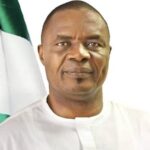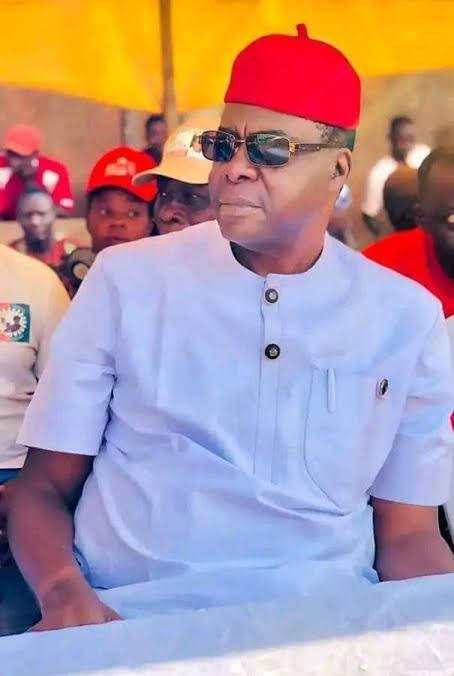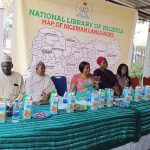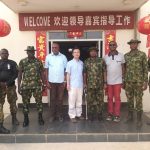By Linus Aleke
Let me start this conversation with a profound gratitude to our Distinguished Sen Okey Ezea (Ideke), for acceding to one of the requests of many constituents as contained in my previous article captioned, “Clarion call to Sen Okey Ezea”.
The said article which, made several demands on the Distinguished Senator Ezea, especially as it relates to the economic growth and progress of Enugu North senatorial district, as well as betterment, welfare and wellbeing of constituents, seems to have yielded minimal result, with the appointment of no fewer than 45 appointees drawn from both Enugu North and Enugu East Senatorial Districts.
Though the other two senators in Enugu State did not appoint a single soul from Enugu North, Ezea’s extension of hands of fellowship to Enugu East, with particular reference to Isi-Uzo is noted with reservations.
No doubt, Sen.Ezea has temporarily made a difference by responding to one of the demands of the people to follow the foot steps of the other senators in the state who seem to have been a step ahead of him in making the necessary appointments, amongst other empowerment programmes.
But whether the new appointments of the constituency aides as announced by Mr. Aniebo Nwamu, in a statement, was in the pipeline before the clarion call, or borne out of it, the good news is that it is well received by the constituents and big congratulations to those appointed to help the Senator succeed in his given mandate.
While many constituents and even outsiders have aligned the commendable action of Senator Ezea to the clarion call, there had also been a flood of encomium from constituents who had continued to reach out to me since the official announcement of the new aides, were made.
One of the constituents who could not hide his joy at the latest action of the Senator in implementing one of the demands in the clarion call, also appealed to him go beyond appointment of constituency aides.
While, the commendations continue to pour in from concerned constituents for pointing a positive way for our Distinguished Senator to follow, it is also instructive to remind him, that the newly appointed aides, also need to be regularly and properly remunerated to enable them give their best for the growth and progress of our cultural zone.
Regular payment of their salaries and emoluments will not only spur them to do more for the district, stimulate their household economy, but also go a long way in endearing the Senator to the grassroot population.
This, should be in addition to reaching out to the young renal disease patient, Mr. Nnaemeka Ugwu, lying helplessly at the University of Abuja Teaching Hospital, Gwagwalada.
While, the constituents applaud Sen. Ezea for the new appointment, we will not also fail to remind him that much more is still required of him.
Nevertheless, I am duty bound to also draw his attention to another very important ingredients of representatives democracy – a functional and well staffed constituency office across the six local government areas, that make up the senatorial district, which, is conspicuously absent in most of the LGAs at the moment.
This is so because, it is absolutely impossible to properly represent a district at the National Parliament, in modern day democracy without a constituency office, where the parliamentarian will periodically interface with his constituents.
This periodic interface is extremely imperative, because it is through this engagement that the parliamentarian, in this case, Sen. Okey Ezea, will hear first hand, the most pressing need, as well as the opportunity costs, for the people, when place on scale of preference, individually and as a group.
That is why it is incomprehensible, for a law maker, though ill experienced in the business of legislative processes, but highly schooled, would continue to represent the good people of Enugu North Senatorial Districts, from a far distance.
Sen. Ezea represents no fewer than six local government areas at the upper chamber of National Assembly, viz, Nsukka, Igbo-Eze South, Udenu, Igbo-Eze North, Uzo-Uwani and Igbo-Etiti.
Finding by yours sincerely, reveals that more than seven months after the inauguration of 10th National Assembly, Sen. Okey Ezea is yet to inaugurate constituency office across the LGAs, that constitutes the modern day Enugu North Senatorial Districts.
Alas, it is absolutely impossible to interact with people from these six local government areas, without visible presence in the localities through what is today known in our parliamentary lexicon as constituency office.
Writing on the subject under scrutiny shortly after the 2019 general elections, one of the Nigeria’s finest journalist, Mr. Reuben Abati, in an article captioned, “Of Constituency Offices and Projects,” and published in Thisday newspaper and the Cable online news portal, posited that
lawmakers are expected to have constituency offices in the same manner in which they open campaign offices during the election season.
He wrote: “A constituency office is a contact address for keeping in touch with the public, a place where the lawmaker can be contacted by his constituents to engage and relate with him, submit petitions for his attention and action, obtain feedback from him about his work in the legislature and draw his attention to community priorities or basically seek help from him or her. Every state in Nigeria has a state of Assembly with members representing local governments. There are 109 members in the Senate, located in the Federal Capital Territory and 360 seats in the House of Representatives”.
Every lawmaker, Abati, said, represents a constituency, stressing, they link national and state politics to the grassroots, reinforcing the notion that politics is essentially local and people-centred.
In most jurisdictions, Abati said, constituency offices are funded by parliament or the executive, and the lawmaker gets a constituency allowance to maintain a properly staffed office.
According to him, “Usually, the legislative calendar is also structured in such a way that lawmakers are given enough time within a year to enable them return to base to interact with the people they represent”.
He therefore, revealed that an investigative story by The Punch, on the subject matter in 2019, revealed what many Nigerians have always observed since the return to civilian rule in 1999: “that is the alienation between parliamentarians and the people, and the urgent need for parliamentary strengthening within the context of citizen relations and wider local, political and sociological forces”. The Punch, he said, revealed that most law makers in the Senate, five months after the 2019 general elections, do not have any office in their constituencies. The same can be said for other lawmakers. Those who probably have offices are in the minority. This is the Nigerian way. Politicians tend to remember the people only during election seasons”.
Giving further insight into the imperative of maintaining a constituency office by a parliamentarian in representative democracy, Erin McMenamin, in an article captioned, “Serving As a Representative of the People: A Guide to Engaging Your Constituents,” and published on the website of the International Republican Institute, said, hearing from a broad range of voices diversifies and improves parliament’s knowledge base, enriches debate, and expands deliberative capacity.
“With greater openness and transparency also comes greater public trust, and with this growing trust comes greater legitimacy and relevance, and a stronger position with respect to the executive branch. Regular two-way communication with the public also plays a critical part in educating citizens on the appropriate roles and functions of parliament, which helps to manage expectations and, in turn, further strengthens public trust.The public can also greatly benefit from having their voices heard in the legislature and in places where decisions are made. The opportunity to share their lived experiences helps ensure that government programs and services are designed effectively and fixed when they are not. Having confidence that their elected representatives are being open with them and listening to their input helps to create a virtuous cycle of constructive civic engagement”.
This, the article added, is imperative for both developing and mature democracies alike.
It is nonetheless, regrettable that our highly respected Senator will stay more than seven months without inaugurating known constituency offices where he will periodically interact with the people to feel first hand, their concern and need and then devise strategies on how best to fill all the identified gaps in his representations of the people.
Aleke writes from Abuja and can be reached on [email protected]











